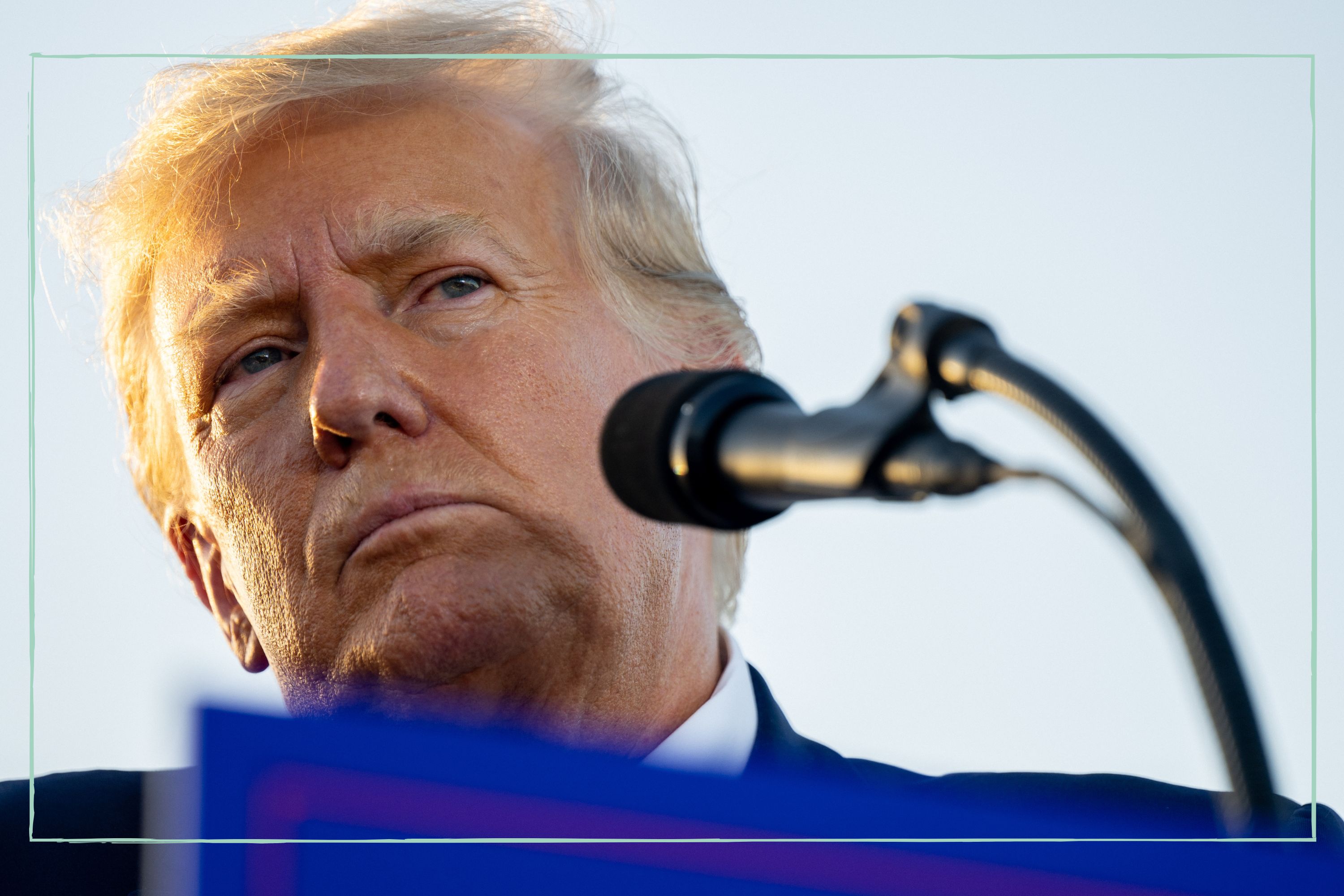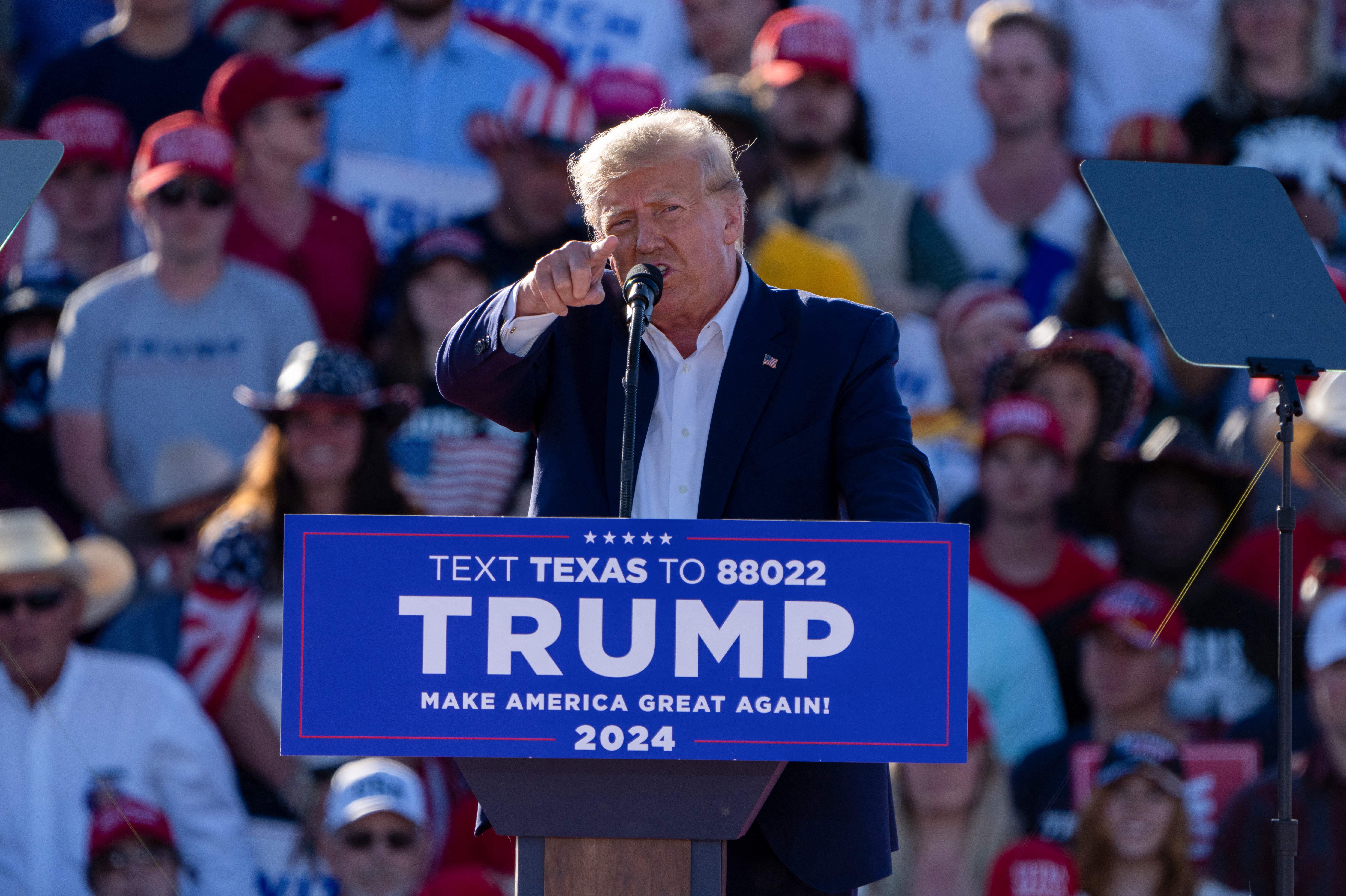
Donald Trump is the first former US president to face criminal charges - leaving many wondering if he will go to jail.
On Thursday 30 March, a New York grand jury voted to indict former President Donald Trump. It marks the first time a former president has been charged criminally in American history, and has thrown up many questions - such as will Trump go to jail, what does indictment mean and what exactly is the former president charged with?
While the charges have not been made public, we do know that it involves hush money that was paid to adult film star Stormy Daniels during his 2016 election campaign. After a Manhattan grand jury determined there was enough evidence to proceed with a case against him, we explain what could happen next - and whether he can still run for president.
Will Trump go to jail?
While we don't know for certain just yet, in theory, yes, Trump could go to jail - but it depends on what he's charged with and if he's convicted. If he's convicted for a misdemeanour - such as falsifying business records - he would be fined. But if convicted for a felony - which would be falsifying records to cover up a crime - then Trump would face a maximum of four years in prison.
If he is convicted of either crime, it will be up to the judge to decide the sentence, but most legal experts predict a fine is more probable, while any time behind bars is highly unlikely.

Trump is expected to appear in person for his arraignment - a formal reading of a criminal charging document - next week, as early as Tuesday.
It will be the first time charges against him will be read in open court, following which Trump - or his attorney on his behalf - will enter a plea, and he will then be released with another court date. Trump has made it clear that he intends to fight the charges.
Will Trump be arrested?
Yes, Trump is facing arrest. However, his attorneys have indicated that he will surrender and turn himself in for processing, meaning no warrant will be put out for his arrest.
Processing is likely to include paperwork, fingerprinting, a mug shot and a cross-check of any outstanding criminal charges - all of which will happen behind closed doors. Once Trump is in the custody of police officers, at that point he is not free to leave and will technically be "under arrest".
What did Donald Trump do?
The charges have not been made public, but a grand jury has been investigating hush money payments made to two women who claimed to have sex with Trump before his term as President.
What we do know is that the charges stem from an investigation into a $130,000 (£106,000) payment to porn star Stormy Daniels in 2016. At the time, Trump was running for president and Daniels contacted media outlets offering to sell her account of what she said was an adulterous affair she had with Trump in 2006 - claims which Trump denies.

As a result, Trump's attorney at the time, Michael Cohen, paid $130,000 to Daniels to keep quiet. While this is not illegal, when Trump paid the money back to Cohen the record for the payment says it was for legal fees.
Prosecutors say this is falsifying business records, which is a misdemeanour (a criminal offence) in New York.
What does indictment mean?
An indictment is a formal charge of a crime, and differs from an arrest because the person charged is not taken into custody. On Thursday 30 March, the grand jury decided to bring charges against Trump.
In this process, the grand jury, which in New York is composed of 23 members of the public, hears evidence from witnesses presented by prosecutors, who then decide whether to ask the jurors to vote on an indictment.
The grand jury process is secret, and the indictment is generally not made public until it is filed in court or until the defendant makes their first court appearance.
A majority of jurors must vote to indict the person for charges to be brought.
Glenn Kirschner, a former prosecutor, previously told USA TODAY that authorities often negotiate the surrender of a high-profile defendant - like Trump - to avoid the spectacle of a "perp walk", in which the person is walked past the media as they enter the courthouse. Instead, Trump is likely to be given a private entrance.
Can you run for president from jail?
Yes, Trump could still run for President if he is in jail or prison. The US Constitution doesn't mention anything about pending criminal charges or a conviction preventing a person from entering office.
In fact, there is nothing in US law that prevents a candidate who is found guilty of a crime from serving as president - even if they are governing from prison.
Therefore, an indictment or even a criminal conviction would not necessarily prevent Trump from continuing his presidential campaign - and he has indicated that he plans to go ahead with it regardless of the outcome.
Video of the Week







